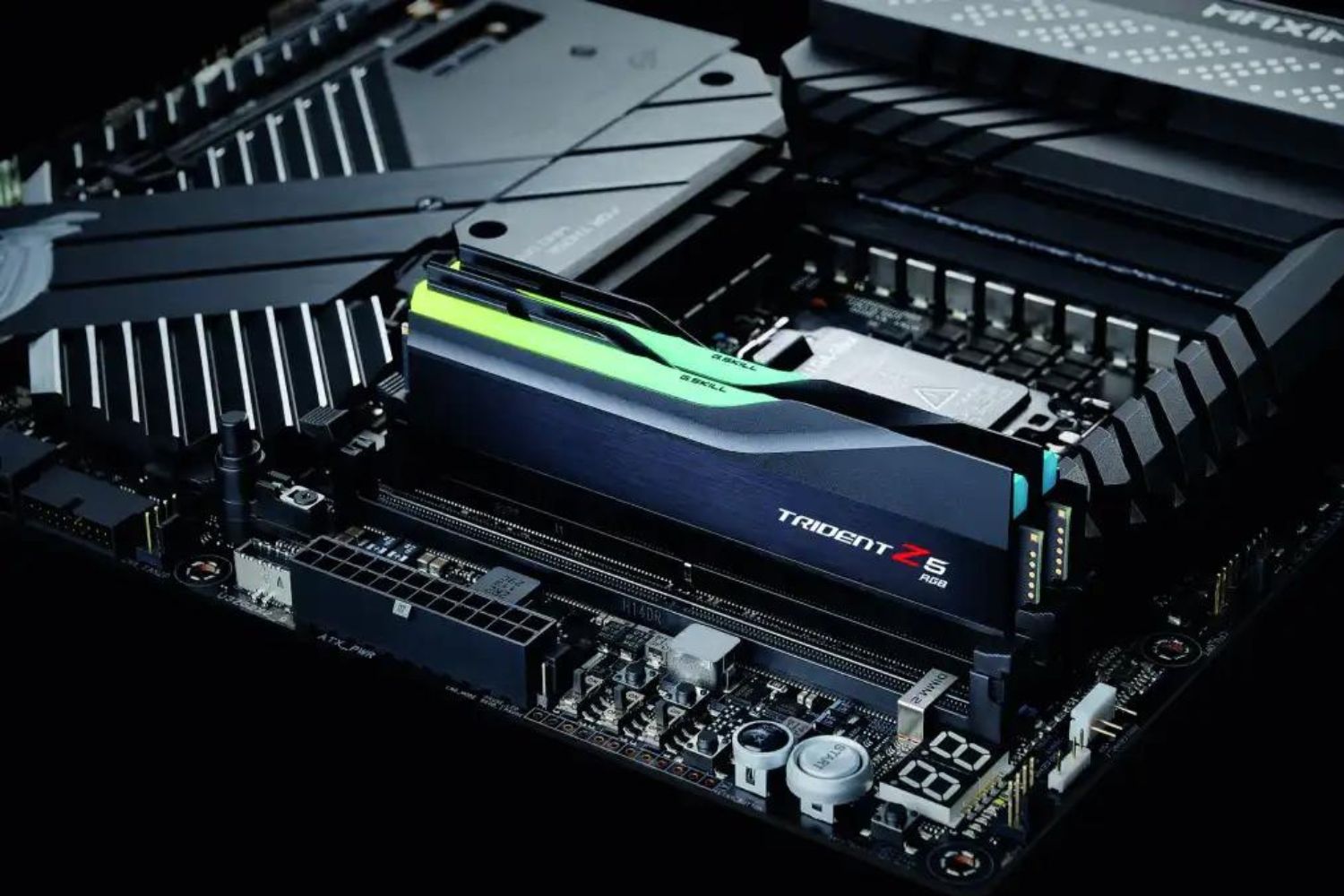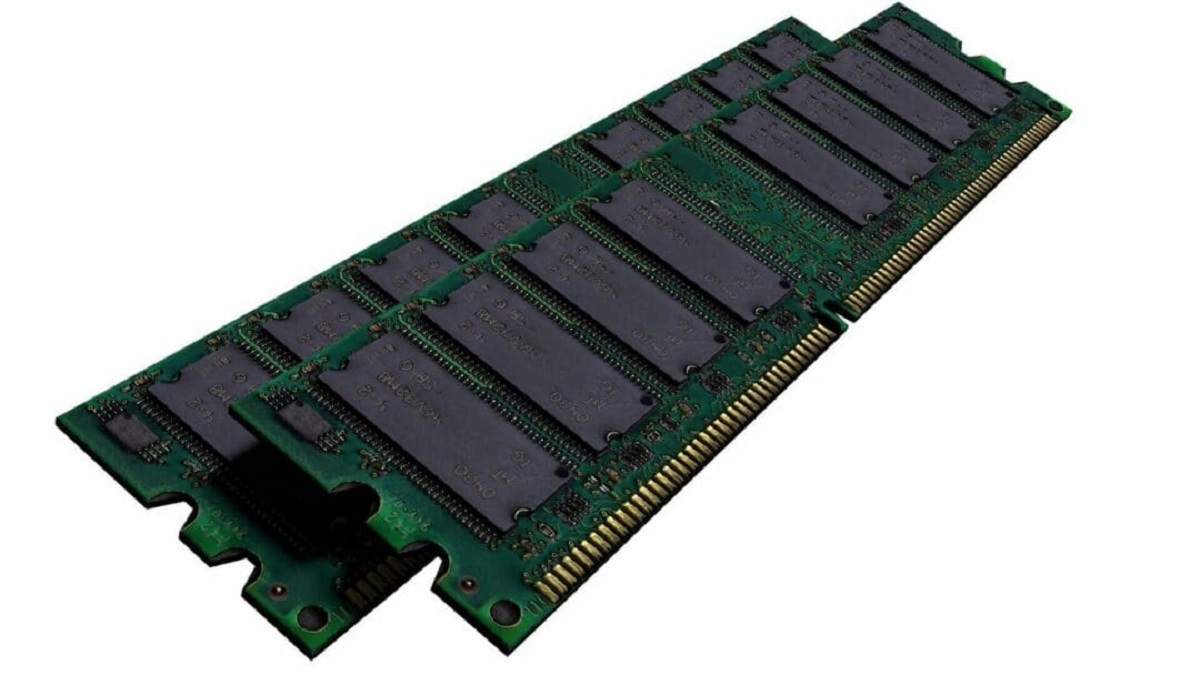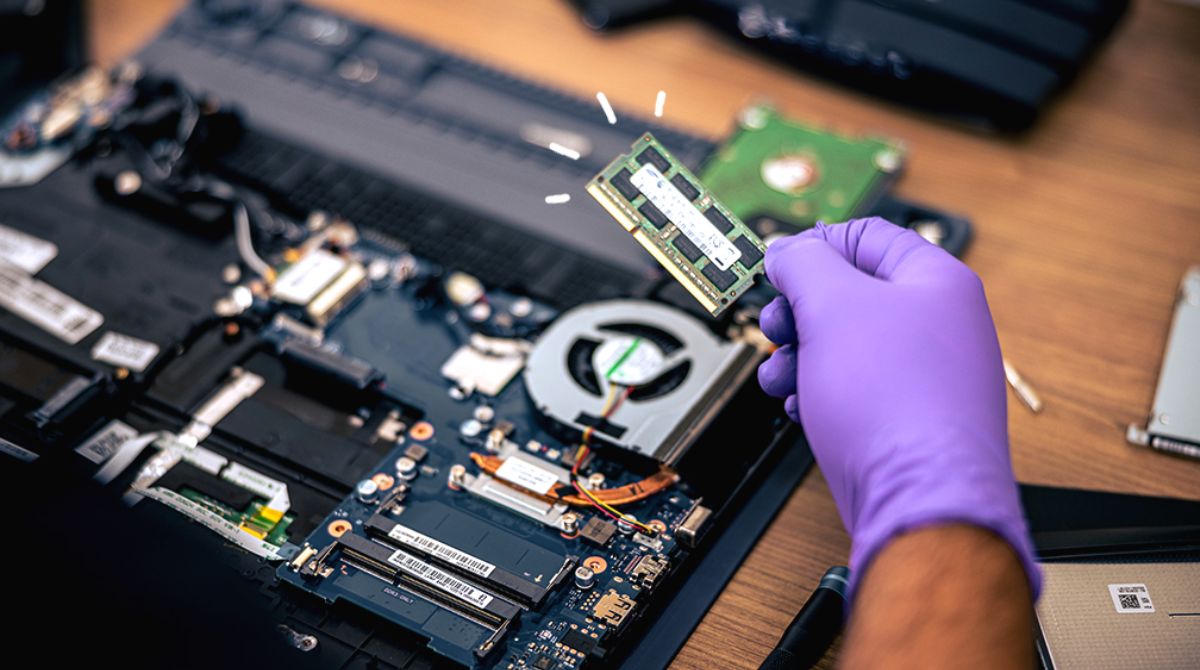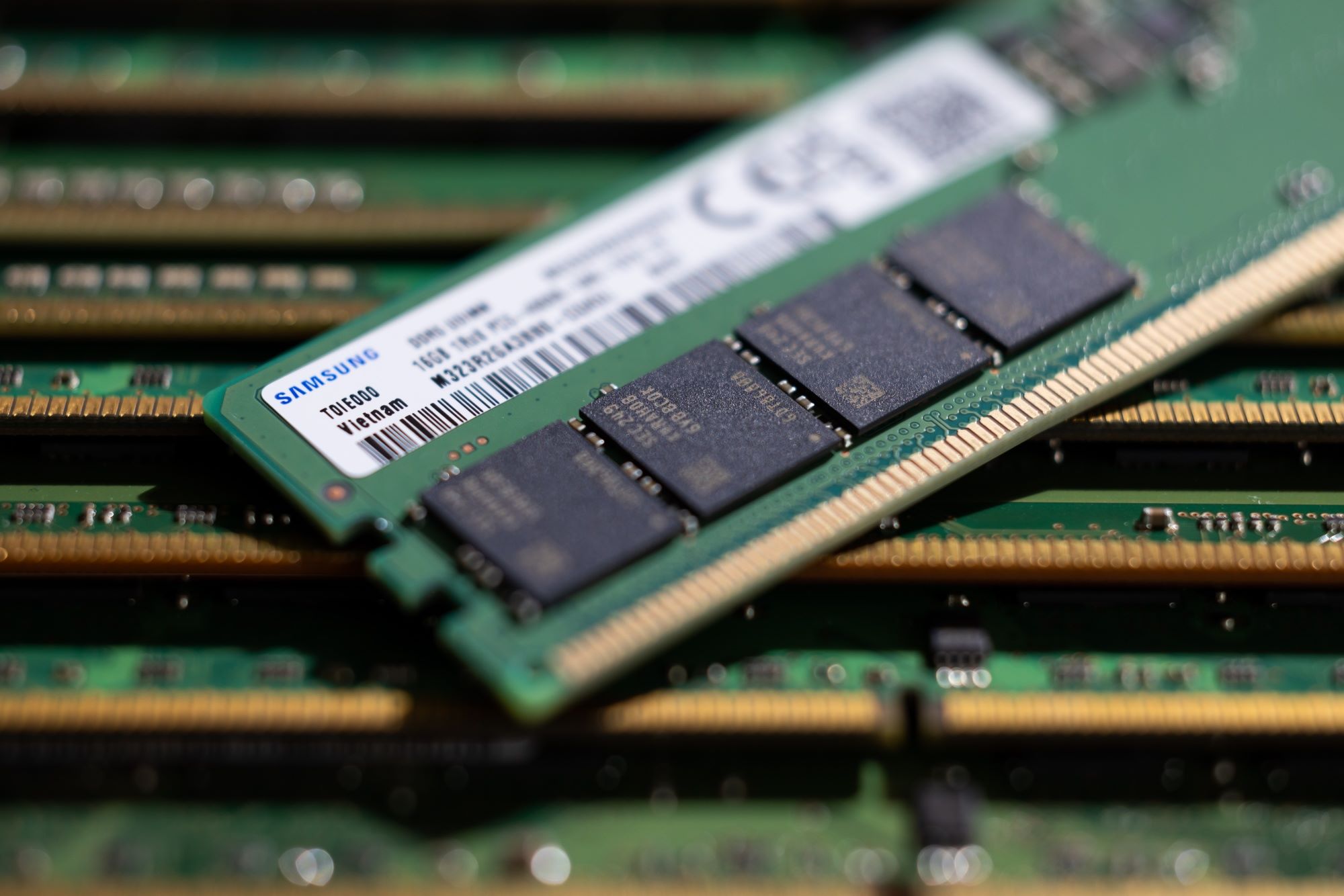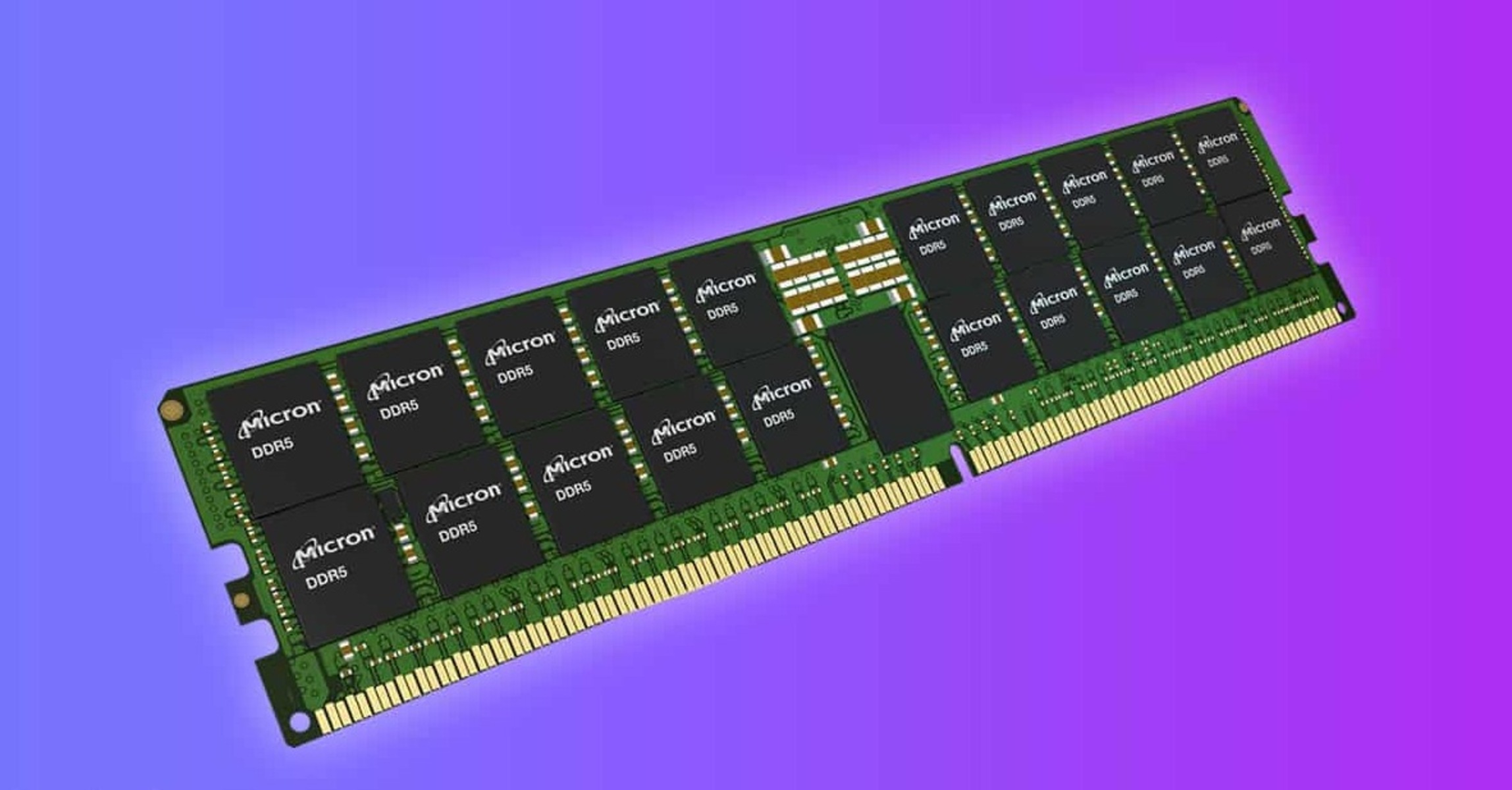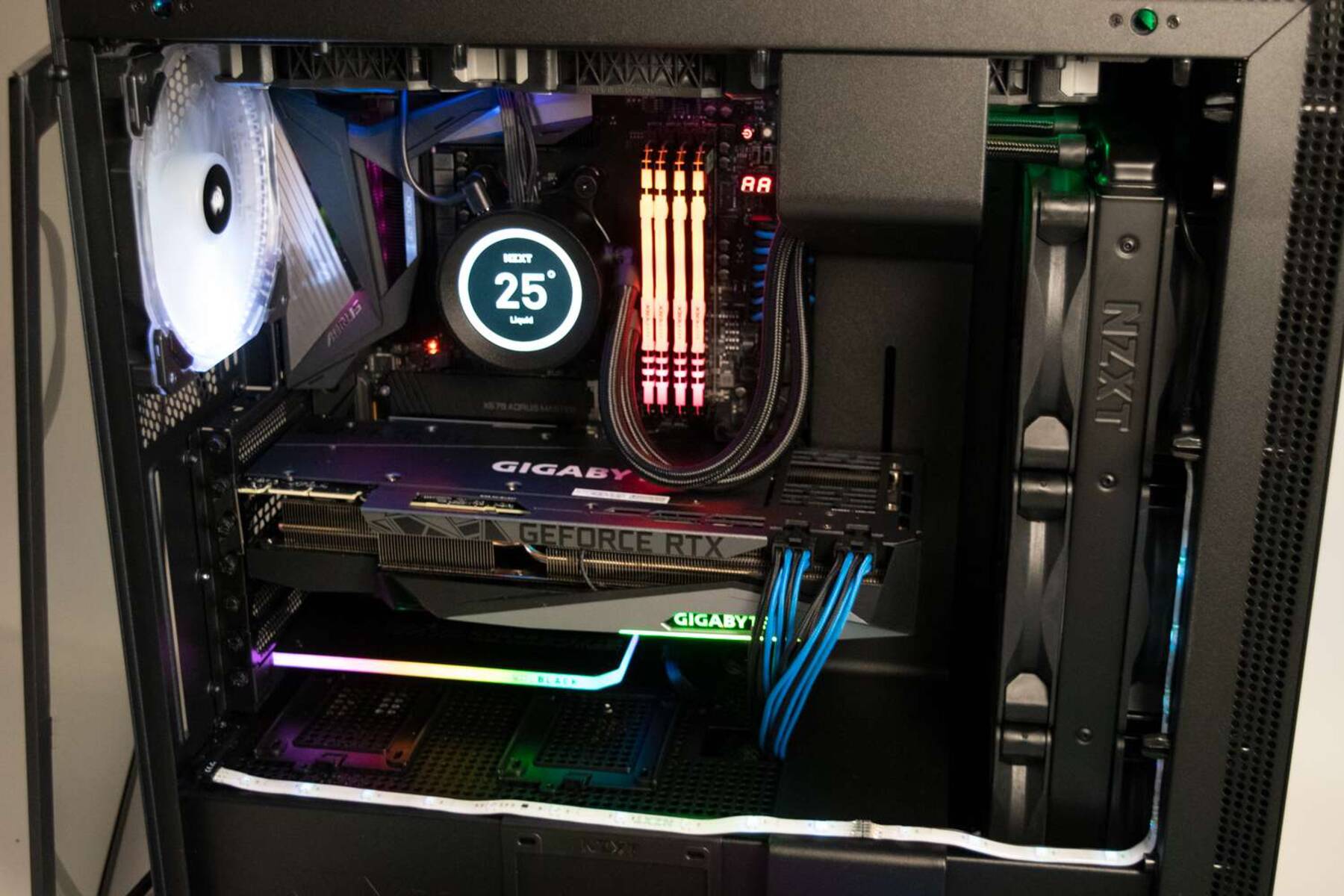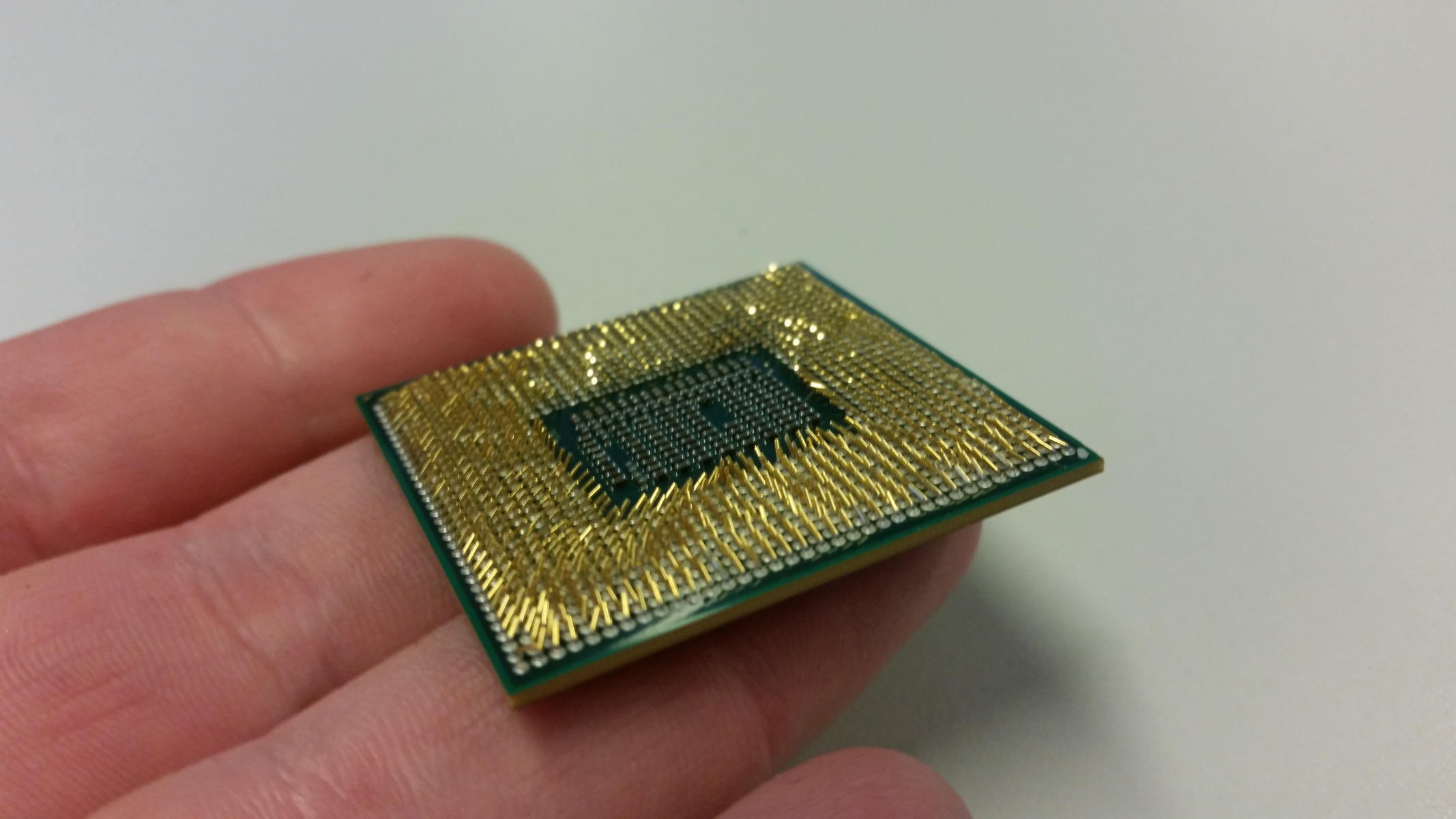Introduction
Welcome to the world of computer hardware, where every component plays a crucial role in determining the performance and capabilities of your system. One key component that often gets overlooked is Random Access Memory, commonly known as RAM. RAM is a type of volatile memory that stores data that the computer is actively using, providing fast access to information and instructions for the CPU.
RAM may not be as glamorous as the latest graphics card or CPU, but it plays a vital role in ensuring your computer runs smoothly and efficiently. Understanding how RAM works and its impact on system performance can help you make informed decisions when upgrading or purchasing a new computer.
In this article, we will explore the various benefits of having an adequate amount of RAM in your system and how it can improve your overall computing experience. From faster multitasking to enhanced gaming performance, we will delve into the different aspects where RAM can make a noticeable difference.
Whether you’re a casual user who enjoys browsing the web or a power user involved in resource-intensive tasks like video editing or running virtual machines, having enough RAM can significantly enhance your system’s speed, responsiveness, and productivity. So, without further ado, let’s delve into the world of RAM and discover how it can unlock the true potential of your computer.
Speed and Responsiveness
One of the primary benefits of having sufficient RAM in your computer is improved speed and responsiveness. When you open an application or perform a task, the required data and instructions are loaded into the RAM for quick access by the CPU. With more RAM available, your computer can store a larger amount of data in its memory, reducing the need to fetch data from a slow hard drive or SSD.
Having ample RAM allows the computer to keep more programs and data readily available, resulting in faster application launches, smoother multitasking, and overall snappier performance. It reduces the time spent on loading and retrieving data, helping you accomplish tasks more efficiently.
If you often find your computer slowing down or becoming unresponsive when working with multiple applications simultaneously, upgrading your RAM can make a world of difference. For example, with more RAM, you can have multiple browser tabs open, run a resource-intensive app, and simultaneously edit a document without experiencing significant slowdowns or system freezes.
Another aspect of speed and responsiveness that is influenced by RAM is the system’s ability to handle large files. When working with large files, such as high-resolution images or video footage, the computer needs to load and manipulate these files quickly. With more RAM, the computer can store more of the file’s data in memory, allowing for faster access and manipulation, minimizing waiting times and improving your overall workflow.
Having sufficient RAM also improves the responsiveness of your computer when it comes to everyday tasks like opening files, switching between applications, and navigating through the operating system. These seemingly small actions can become noticeably slower if your system is struggling with inadequate RAM. Upgrading your RAM can breathe new life into your computer, making it feel more responsive and quick to your commands.
Multitasking and Productivity
In today’s fast-paced digital world, multitasking has become a necessity for many users. Whether you’re a student, professional, or casual user, the ability to seamlessly switch between multiple applications and tasks is essential for productivity. This is where having sufficient RAM in your computer can greatly enhance your multitasking capabilities.
With more RAM, your computer can efficiently handle multiple applications running simultaneously without a significant drop in performance. You can comfortably have multiple browser tabs open, work on a document while running a resource-intensive application, or edit images and videos concurrently. Rather than experiencing lag or slowdowns, your system will be able to handle these tasks effortlessly, allowing you to work more efficiently and save precious time.
In addition to running multiple applications, having adequate RAM also enables you to run virtual machines or emulators smoothly. Virtual environments require a portion of your computer’s memory to function, and having limited RAM can limit your ability to run multiple virtual machines or emulate various operating systems. By upgrading your RAM, you can dedicate enough memory resources to each virtual machine, enhancing their performance and avoiding any lag or issues.
Furthermore, if you often work with memory-intensive software such as graphic design tools, video editing software, or data analysis programs, having more RAM can significantly boost your productivity. These applications often require a substantial amount of RAM to process complex data sets, manipulate high-resolution media, or perform intensive calculations. Without enough RAM, these programs may struggle to run smoothly, resulting in longer rendering times, slow previews, and overall decreased productivity. Upgrading your RAM allows these applications to access more memory, enabling them to work at their full potential.
Investing in ample RAM not only enhances your multitasking capabilities but also contributes to a smoother workflow, increased productivity, and a more enjoyable computing experience. With the ability to seamlessly switch between tasks and run resource-intensive software without a hitch, you’ll be able to accomplish more in less time, ultimately boosting your efficiency and output.
Gaming Performance
For avid gamers, having a powerful computer setup is essential to enjoy smooth and immersive gaming experiences. While a high-performance graphics card and fast CPU are crucial, having ample RAM is equally important in optimizing gaming performance.
When you launch a game, it loads various game-related files and assets into the RAM to ensure fast access and smooth gameplay. The more RAM you have, the more game data can be stored in memory, reducing the need for the system to continually fetch data from the storage drive. This results in quicker loading times, smoother gameplay, and minimal stuttering or lag during intense gaming moments.
In addition to quicker loading times, having sufficient RAM can enhance other aspects of gaming performance. Many modern games feature larger and more detailed in-game worlds, complex physics simulations, and advanced AI. These elements require a significant amount of memory to store and process the data in real-time. Insufficient RAM can lead to reduced frame rates, longer wait times for assets to load, and general performance issues.
Furthermore, multiplayer gaming often involves running voice chat software, streaming platforms, and other background applications. These additional programs consume memory resources, and inadequate RAM can lead to decreased performance in both the game and the accompanying applications. Upgrading your RAM allows for smoother multitasking while gaming, ensuring a seamless experience without compromising performance.
It’s worth noting that certain games, especially those with high-resolution textures and detailed graphics, benefit more from having more RAM. If you find yourself frequently playing graphically demanding titles or running mods that enhance a game’s visuals, upgrading your RAM can provide a noticeable improvement in image quality, texture loading times, and overall graphical fidelity.
In summary, having ample RAM is essential for optimizing gaming performance. It allows for faster loading times, smoother gameplay, and the ability to handle resource-intensive games without sacrificing frame rates or graphical quality. If you’re serious about gaming and want to maximize your gaming experience, upgrading your RAM is a worthwhile investment that can significantly enhance your gameplay performance.
Video Editing and Rendering
Video editing and rendering are resource-intensive tasks that require significant computing power. When working on video projects, having sufficient RAM can greatly enhance the efficiency and speed of the editing and rendering process.
During video editing, your computer needs to load and manipulate large video files, apply effects and transitions, and render previews in real-time. All of these tasks require a considerable amount of memory. Insufficient RAM can result in slower rendering times, laggy previews, and overall sluggish performance.
Having ample RAM allows your video editing software to store a larger portion of the video files and project data in memory, reducing the need for constant read and write operations to the storage drive. This leads to faster video scrubbing, smoother playback, and quicker rendering times. With more RAM available, you can work on complex projects with multiple layers, effects, and high-resolution footage without experiencing significant performance bottlenecks.
In addition to the editing process, rendering the final video is another resource-demanding task. When you render a project, your computer processes and combines all the edits, effects, and adjustments to output the final video file. The more RAM your system has, the more data it can store in memory during the rendering process, resulting in faster rendering times. This is especially important for longer videos or projects with complex effects and high-resolution footage.
It’s important to note that video editing software often utilizes a feature called “RAM preview,” which allows you to preview your edits in real-time without rendering the entire video file. Having enough RAM ensures smooth and accurate previews, allowing you to make precise adjustments and fine-tune your edits more efficiently.
Overall, whether you’re a professional video editor or someone who enjoys editing videos as a hobby, having sufficient RAM is crucial for a smooth and productive editing process. It enables faster rendering times, smoother playback, and efficient handling of large video files and effects. If you regularly work on video projects, upgrading your RAM can significantly enhance your video editing and rendering capabilities, leading to improved productivity and better-quality final results.
Running Virtual Machines and Emulators
Virtual machines and emulators are powerful tools that allow users to create and run multiple operating systems and software environments on a single computer. Whether for software development, testing purposes, or running legacy applications, having sufficient RAM is essential for smooth and efficient virtualization.
Virtual machines require a portion of your computer’s memory to function, as they essentially run an entire operating system and associated applications within a virtualized environment. The more RAM you have, the more resources you can allocate to each virtual machine, resulting in improved performance and responsiveness.
Running virtual machines or emulators with inadequate RAM can lead to sluggish performance, longer response times, and overall decreased efficiency. This is particularly noticeable when running multiple virtual machines simultaneously or when dealing with resource-intensive applications within the virtual environment. Upgrading your RAM allows for smoother multitasking and ensures that each virtual machine has enough system resources to operate efficiently.
In addition to running virtual machines, emulators are popular tools used to simulate the behavior of specific devices or platforms. Emulating gaming consoles, mobile devices, or other hardware environments requires a significant amount of RAM to ensure smooth execution and accurate emulation. With more RAM, your system can handle the extra memory requirements of the emulator, resulting in improved performance and a more authentic experience.
Whether you’re a developer, tester, or simply someone interested in exploring different operating systems or software environments, having ample RAM is critical for effective virtualization. It not only provides better performance and responsiveness but also allows for seamless multitasking and smoother execution of resource-intensive applications within the virtual environment.
Upgrading your RAM can unlock the full potential of virtual machines and emulators, enabling you to run multiple instances smoothly, simulate various devices accurately, and create powerful virtual environments for testing, development, or exploration purposes.
Web Browsing and Internet Performance
In today’s digital age, web browsing has become an integral part of our daily lives. Whether it’s for work, research, entertainment, or communication, having a seamless web browsing experience is essential. While a fast internet connection is important, having sufficient RAM in your computer can further enhance your web browsing and internet performance.
When you visit a website, your web browser loads and renders various elements, such as HTML, CSS, JavaScript, images, and videos. These elements are stored in the computer’s memory for faster access and smoother browsing. With more RAM, your computer can store a larger portion of these website components, resulting in faster page load times and a more responsive browsing experience.
Having ample RAM is particularly beneficial when multitasking and having multiple tabs or windows open simultaneously. Each open tab consumes memory resources, and insufficient RAM can lead to slow loading times or unresponsive tabs. By upgrading your RAM, you can have more tabs open simultaneously without sacrificing performance, enabling you to switch between websites seamlessly.
In addition to web browsing, having sufficient RAM can also enhance the performance of web-based applications and services. Whether you’re using online collaboration tools, cloud-based software, or media streaming platforms, these applications often rely on web technologies and require a significant amount of memory to operate smoothly. With more RAM, your computer can handle these web-based applications efficiently, ensuring optimal performance and responsiveness.
Another aspect of web browsing and internet performance that can be improved by having ample RAM is downloading and uploading large files. When you download a file from the internet or upload files to a cloud storage service, having enough RAM allows for smoother and faster data transfer. Your computer can store larger chunks of the file in memory, reducing the time spent on disk operations and resulting in quicker download and upload speeds.
Overall, having sufficient RAM enhances your web browsing and internet performance by improving page load times, enabling smooth multitasking with multiple tabs open, enhancing the performance of web-based applications, and facilitating faster file transfers. If you frequently use the internet for work, research, or leisure, upgrading your RAM can greatly enhance your overall browsing experience and productivity.
Opening and Managing Large Files
Opening and managing large files is a common task for many computer users, whether it’s working with high-resolution images, large video files, extensive spreadsheets, or complex databases. However, handling these large files can be challenging if your computer does not have sufficient RAM to accommodate their size. Having ample RAM can significantly improve the efficiency and speed with which you can open and manage these types of files.
When you open a large file, your computer needs to load the file’s data into memory to make it accessible for editing, viewing, or processing. If the file is larger than the available RAM, the computer will have to rely on slower storage devices, such as hard drives or solid-state drives (SSDs), to fetch the data as needed. This can lead to longer wait times, delays when scrolling or editing, and decreased overall performance.
By upgrading your RAM, you provide your computer with the necessary memory capacity to store more of the file’s data, minimizing the need for frequent read and write operations to the storage drive. This results in faster file loading times, smoother scrolling, and improved responsiveness when working with the file. Whether you’re editing a large Photoshop project, manipulating a massive video project, or analyzing a complex dataset in Excel, having sufficient RAM ensures a more efficient workflow.
In addition to opening large files, managing them also benefits from having ample RAM. When you make edits, apply changes, or perform complex operations on the file, your computer needs to process and save the modifications. If you have limited RAM, these operations can take longer, causing delays and hindering productivity. With more RAM, your computer can process and save changes more quickly, ensuring a seamless editing experience.
Moreover, having sufficient RAM allows you to open and work with multiple large files simultaneously without sacrificing performance. If you regularly juggle multiple projects or need to compare data from multiple sources, upgrading your RAM can significantly improve your multitasking capabilities. Your computer can store more of the data from each file in memory, allowing you to switch between files seamlessly and work on them simultaneously without experiencing significant slowdowns.
In summary, having ample RAM is crucial for opening and managing large files efficiently. It reduces loading times, improves scrolling and editing performance, and facilitates smooth multitasking with multiple files open. Whether you work with graphics, videos, spreadsheets, databases, or other large files, upgrading your RAM can greatly enhance your productivity and provide a smoother and more seamless experience.
Running Memory-Intensive Software
Memory-intensive software, such as graphic design tools, data analysis programs, 3D modeling applications, and virtual instruments, often require a significant amount of RAM to operate efficiently. If you use these types of software regularly, having ample RAM in your computer is essential for optimal performance and smooth operation.
Memory-intensive software works with large datasets, complex calculations, and resource-demanding algorithms. With limited RAM, your computer may struggle to keep up with the demands of these programs, leading to slow processing speeds, increased waiting times, and general performance issues.
Upgrading your RAM provides your computer with the necessary memory resources to handle these memory-intensive tasks more effectively. It allows the software to store and access more data in memory, reducing the need for frequent read and write operations to the storage drive. This results in faster processing times, smoother workflow, and improved overall performance.
For example, graphic design software like Adobe Photoshop or Illustrator often requires a significant amount of RAM to handle large image files, complex layers, and intricate effects. With sufficient RAM, you can work with high-resolution images seamlessly, apply multiple edits and adjustments in real-time, and experience fluid interaction with the software.
Data analysis programs, such as MATLAB or R, rely heavily on manipulating and processing large datasets. By upgrading your RAM, you allow these software tools to store more data in memory, accelerating the calculations, and improving the efficiency of your data analysis tasks. This can save you valuable time when performing complex analyses or working with big data.
Similarly, 3D modeling applications, video editing software, and virtual instruments require substantial memory resources to handle complex renders, real-time previews, and intricate sound processing. Insufficient RAM can result in long rendering times, choppy previews, and delayed responses when working with these memory-intensive applications. With more RAM, you can enjoy a smoother experience, faster renders, and better responsiveness when working with these software tools.
Ultimately, running memory-intensive software becomes a much more pleasant and productive experience with ample RAM. Upgrading your RAM not only improves performance but also allows you to work on more complex and demanding projects without limitations. Whether you’re a creative professional, a data analyst, or working in any field that requires memory-intensive software, investing in sufficient RAM is crucial to unlock the full potential of these applications.
Overall System Performance
RAM plays a crucial role in determining the overall performance of your computer system. While other components like the CPU and graphics card contribute to specific tasks, having ample RAM ensures smooth operation across various applications and tasks, resulting in an improved overall system performance.
Having sufficient RAM allows your system to handle multiple tasks simultaneously without significant slowdowns or performance bottlenecks. Whether you’re working on a complex project, browsing the web, running resource-intensive software, or playing games, more RAM ensures that your computer can access and store the necessary data quickly, minimizing wait times and enhancing overall responsiveness.
Furthermore, having adequate RAM improves the efficiency of virtual memory management. Virtual memory is a system where the computer utilizes a portion of the hard drive as virtual RAM when the actual RAM becomes insufficient. However, using virtual memory can significantly slow down your system, as hard drives are considerably slower than RAM. With more RAM, your system can minimize the usage of virtual memory, resulting in faster and more efficient system performance.
Another benefit of having ample RAM is improved system stability. When your computer’s memory is constantly near its capacity, it can lead to crashes, freezes, and other stability issues. Insufficient RAM can cause programs to crash, impede the saving of files, and even lead to data loss. By upgrading your RAM, you provide your system with the necessary memory resources to handle its workload, ensuring a stable and reliable computing experience.
In addition to stability, having enough RAM can also help reduce system heat and energy consumption. When your computer has inadequate RAM, it relies more heavily on virtual memory, which involves more frequent read and write operations to the hard drive. This increases the workload on the hard drive and other components, causing them to work harder and generate more heat. By upgrading your RAM and reducing the reliance on virtual memory, you can help maintain cooler operating temperatures and potentially extend the lifespan of your system components.
Overall, having ample RAM is crucial for achieving optimal system performance. It allows for efficient multitasking, minimizes reliance on virtual memory, improves system stability, and reduces heat and energy consumption. By providing your computer with enough memory resources to handle its workload, you can enjoy a smoother, more responsive, and more enjoyable computing experience.
Conclusion
In conclusion, having sufficient RAM in your computer is instrumental in improving various aspects of its performance and capabilities. From speed and responsiveness to multitasking and productivity, gaming performance, video editing, running virtual machines, web browsing, opening and managing large files, running memory-intensive software, and overall system performance, RAM plays a crucial role in unlocking the true potential of your computer.
By upgrading your RAM, you can experience faster application launches, smoother multitasking, and improved overall responsiveness. The ability to smoothly switch between multiple applications and handle resource-intensive tasks without significant slowdowns or system freezes enhances your productivity and efficiency. Moreover, ample RAM enables smoother gaming experiences, faster video editing and rendering, efficient virtualization, seamless web browsing, and improved handling of large files.
Not only does having sufficient RAM enhance your overall system performance, but it also contributes to system stability, reducing crashes and freezes. By reducing reliance on virtual memory, upgrading your RAM can also help conserve system resources, reduce heat generation, and improve energy efficiency.
Whether you’re a professional user or a casual computer enthusiast, upgrading your RAM is a worthwhile investment that can significantly enhance your computing experience. It empowers you to accomplish more in less time, work on complex projects seamlessly, and enjoy immersive gaming and multimedia experiences.
When considering upgrading your RAM, it’s essential to assess your specific needs and determine the amount of RAM required for your tasks and applications. Consult with a professional or refer to your computer’s specifications to ensure compatibility and make an informed decision.
In summary, RAM is a critical component that can greatly impact the performance, speed, and overall capabilities of your computer. Investing in sufficient RAM allows you to unlock the full potential of your system, enabling you to work, play, and create with enhanced efficiency and effectiveness.







